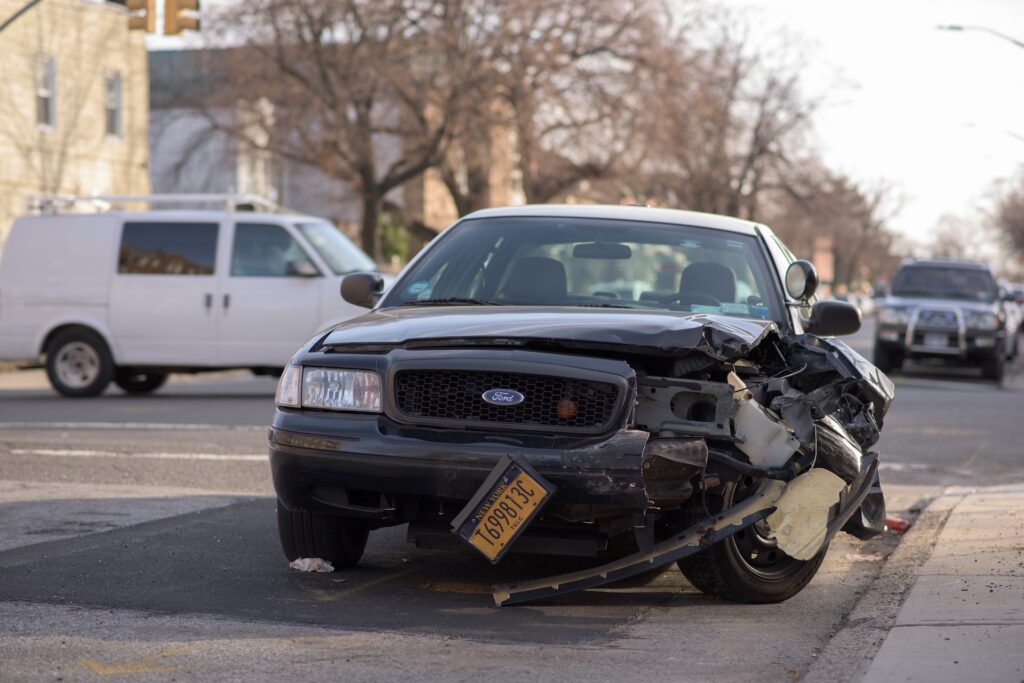Getting in a collision while driving is always an unpleasant situation. Besides having to deal with the inevitable damage to your car and potential injuries to the people inside, you also have to clarify who was at fault and figure out if you can get compensation. Keep reading to discover if you need to call the police for all collisions you’re involved in and what steps you can take to minimize the consequences.
In What Situations Do I Need To Call the Police After a Collision?

The requirement to call the police after being involved in a vehicle collision generally depends on the state and jurisdiction where it occurs. If you’re in a situation that involves serious injuries, heavy property damage, or suspicion of criminal activity, you’re always required by law to call the police. However, if the damage is below a certain threshold, which varies depending on your location, you may not be legally required to call the police. In the state of Illinois, that threshold is $1,500 in property damage or $500 if the other driver involved doesn’t have insurance.
That said, it’s always a good idea to call the police regardless of whether you’re legally obliged. These are some specific reasons why you should.
You or Your Passengers May Have Injuries That You Aren’t Aware Of
Getting in a car accident is a shock for most people. The adrenaline that rushes through your body after the accident may prevent you from feeling some of the injuries you sustain. If you leave the scene of an accident without calling the police and later notice some serious injuries, the other driver can claim that the injuries may have occurred in an unrelated situation. Calling the police means that a report will be filed that includes all relevant information regarding the accident.
Even if you don’t notice some of the injuries right away, you can use the police report to make a reasonable claim that the collision caused them. Ideally, you should have a doctor check you out as soon as possible after the collision. A medical report can confirm all your injuries and act as evidence that they’re due to the collision you went through.
The Other Driver Involved May Deny Their Responsibility
If you’re involved in a collision and the other driver is at fault, don’t just take their word for it. Even if they admit responsibility right away, they may deny it later when they discover that you contacted their insurance company. If you have no clear proof that it was their fault, you’re left with no way to prove their responsibility. If you call the police, they will arrive on the scene and file a police report that you can use later to file your claim.
You Can Get a Knowledgeable and Unbiased Opinion
Determining who was at fault in a car collision may be challenging even if you were involved in it. Calling the police is a good idea if you and the other driver have differences of opinion regarding how the scene unfolded. A police officer can analyze the situation and use their knowledge to determine a guilty party. Having an official document stating your lack of responsibility for the collision can help you make a claim with the insurance company.
How To Proceed if You’re Involved in a Collision
While calling the police is an important step after being involved in a car collision, it isn’t the only one. This is how you can proceed if this happens to you.
- Check yourself and everyone else in your car for injuries. The most important thing is always the well-being of the people involved in the collision. Before even thinking about the material damage, make sure everyone’s okay, and call an ambulance if they’re not.
- Make sure the people in the other car are okay. You should also check the driver and passengers in the car that you collided with. They could have been affected more than you and may require immediate assistance.
- Make sure everyone is in a safe location. Collisions often leave the vehicles involved in the middle of the road, making them susceptible to other accidents. Get everyone as far from the crash as possible, and move your car if it’s still drivable.
- Call the police. Now that everyone’s as safe as possible, you can call the police. While waiting for them to arrive, try to identify any witnesses and get their contact information.
- Gather as much evidence as you can. Document the situation by taking photos of both vehicles, any property damage, and anything else you consider may be relevant. These can help you make an insurance claim later.
- Exchange information with the other driver. Make sure you get relevant information from the other driver involved. This includes their name, contact information, insurance carrier, policy number, car plate number, and driver’s license.
- Contact your insurance company. After everything’s settled on the scene, everyone is out of imminent danger, and you have all the relevant information regarding the collision, call your insurance company. They can instruct you on how to file your claim.
- File a claim against the driver’s insurance. If the other driver is the at-fault party in this situation, you can file a claim against their insurance to get compensation for your material and emotional damages.
How Does American Auto Insurance Cover Collisions?
Having American Auto Insurance as your carrier can benefit you in many ways. First, you can get full compensation if you’ve been involved in a vehicle collision that wasn’t your fault, even if the other motorist is uninsured or underinsured. We can also help you avoid liability for any damages if you’re the at-fault party. Other benefits include coverage for your medical bills, property damage, and even your car rental payments while your vehicle is being repaired. Contact us and we can work with you to determine the most appropriate coverage for your situation.
Photo by Michael Jin on Unsplash


